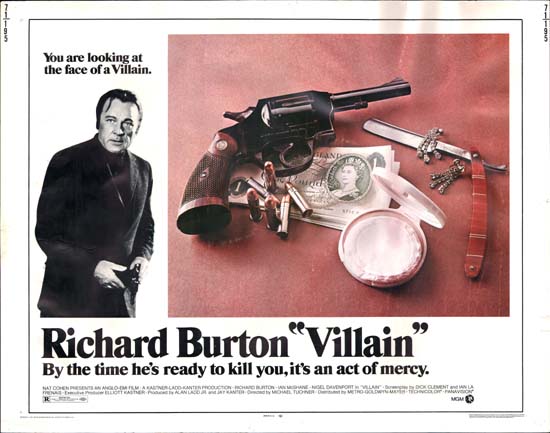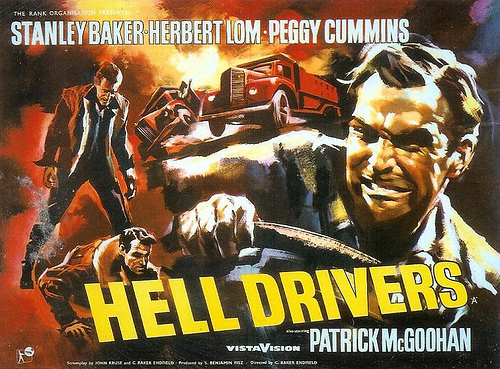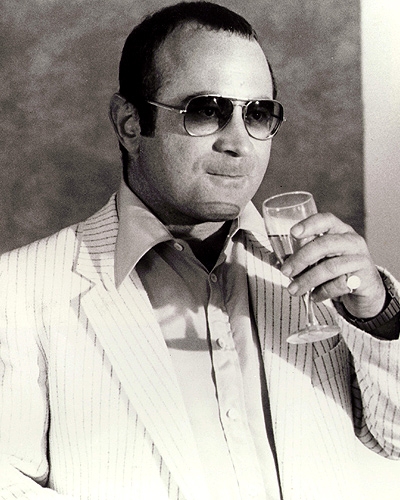Search
-
Recent Posts
- Dishing up Pulp Curry in a new way: why I am starting a Substack newsletter
- Book reviews: Deadly dames, midcentury Brit pulp and 1970s science fiction
- Mackenna’s Gold (1969): Gold, Ghosts and Frontier Violence
- Orphan Road book launch
- Orphan Road now available
- Pre-orders open for my new novel, Orphan Road
- Cover reveal: Orphan Road, my follow up to Gunshine State
- Breakfast in the Ruins podcast: New English Library Bikermania
- Why 1973 was the year Sidney Lumet took on police corruption
- Men’s Adventure Quarterly: Gang Girls issue
Categories
- 1960s American crime films
- 1970s American crime films
- 1980s American crime films
- 1990s American crime films
- Adrian McKinty
- Albert Dekker
- Andre De Toth
- Angela Savage
- Angie Dickinson
- Anthony Zerbe
- Asian noir
- Australian crime fiction
- Australian crime film
- Australian noir
- Australian popular culture
- Australian pulp fiction
- Australian television history
- Ava Gardner
- Beat culture
- Belmont Tower Books
- Ben Wheatley
- Billie Whitelaw
- Black pulp fiction
- Blaxsploitation
- Book cover design
- Book Reviews
- British crime cinema
- British pulp fiction
- Bryan Brown
- Burt Lancaster
- Carter Brown
- Charles Durning
- Charles Willeford
- Chester Himes
- Christopher G Moore
- Christopher Lee
- Cinema culture
- Claude Atkins
- Coronet Books
- Crawford Productions
- Crime Factory
- Crime Factory Publications
- Crime fiction
- Crime fiction and film from Africa
- Crime fiction and film from Cambodia
- Crime fiction and film from China
- Crime fiction and film from India
- Crime fiction and film from Indonesia
- Crime fiction and film from Japan
- Crime fiction and film from Laos
- Crime fiction and film from Latin and Central America
- Crime fiction and film from Malaysia
- Crime fiction and film from New Zealand
- Crime fiction and film from Scandinavia
- Crime fiction and film from Singapore
- Crime fiction and film from South Korea
- Crime fiction and film from Thailand
- Crime fiction and film from the Philippines
- Crime Fiction and film set in Vietnam
- Crime film
- Dangerous Visions and New Worlds Radical Science Fiction 1950 to 1985
- David Goodis
- David Peace
- David Whish-Wilson
- Derek Raymond
- Diana Dors
- Dirk Bogarde
- Don Siegel
- Don Winslow
- Donald Westlake aka Richard Stark
- Dystopian cinema
- Ernest Borgnine
- Eurocrime
- Fawcett Gold Medal Books
- Femme fatale
- Fernando Di Leo
- Filipino genre films
- Film Noir
- Forgotten Melbourne
- French cinema
- French crime fiction
- Garry Disher
- Gene Hackman
- George V Higgins
- Georges Simenon
- Ghost Money
- Giallo cinema
- Gil Brewer
- Girl Gangs, Biker Boys and Real Cool Cats: Pulp Fiction & Youth Culture, 1950-1980
- Gloria Grahame
- Gold Star Publications
- Gregory Peck
- Gunshine State
- Heist films
- Horror
- Horwitz Publications
- Humphrey Bogart
- Ian Fleming
- Interviews
- Ira Levin
- James Caan
- James Crumley
- James Ellroy
- James Hadley Chase
- James Woods
- Jim Brown
- Jim Thompson
- Joel Edgerton
- John Frankenheimer
- Joseph Losey
- Karen Black
- Kerry Greenwood
- Kinji Fukasaku
- Larry Kent
- Laura Elizabeth Woolett
- Lee Marvin
- Leigh Redhead
- Lindy Cameron
- M Emmet Walsh
- Mad Max
- Mafia
- Malla Nunn
- Martin Limon
- Megan Abbott
- Melbourne International Film Festival
- Melbourne Writers Festival
- Men's Adventure Magazines
- Michael Caine
- Michael Fassbender
- Mickey Spillane
- Monarch Books
- Ned Kelly Awards
- Neo Noir
- New English Library
- Newton Thornburg
- Noir Con
- Noir fiction
- Non-crime reviews
- Oren Moverman
- Orphan Road
- Ozsploitation
- Pan Books
- Parker
- Paul Newman
- Peter Boyle
- Peter Corris
- Peter Strickland
- Peter Yates
- Poliziotteschi
- Pulp fiction
- Pulp fiction in the 70s and 80s
- Pulp fiction set in Asia
- Pulp Friday
- Pulp paperback cover art
- Qui Xiaolong
- Raymond Chandler
- Richard Burton
- Richard Conte
- Robert Aldrich
- Robert Mitchum
- Robert Ryan
- Robert Stone
- Rock Hudson
- Roger Smith
- Rollerball
- Rosaleen Norton
- Roy Scheider
- Rural noir
- Sam Levene
- Sam Peckinpah
- Samuel Fuller
- Science fiction and fantasy
- Scripts Publications
- Sidney Lumet
- Sidney Poitier
- Simon Harvester
- Snowtown
- Snubnose Press
- Spies
- Stanley Baker
- Sterling Hayden
- Steve McQueen
- Sticking it the the Man Revolution and Counter Culture in Pulp and Popular Fiction 1950 1980
- Stuart Rosenberg
- Tandem Books
- Tart noir
- Tartan Noir
- Ted Lewis
- Toni Johnson Woods
- True crime
- Vicki Hendricks
- Victor Mature
- Vintage mug shots
- Vintage pulp paperback covers
- Wallace Stroby
- War film
- Westerns
- William Friedkin
- Woody Strode
- Yakuza films
- Yaphet Kotto
Nothing but noir
Recommended reading
The lurid world of pulp
- 20th century Danny Boy
- American Pulps
- Bear Alley
- Bloody, Spicy, Books
- Comics Down Under
- Everything second hand
- Existential Ennui
- Greenleaf Classic Books
- Irv O. Neil's Erotica is My Trade
- Killer Covers
- Lost Classics of Teen Lit 1939-1989
- Luminist Archives
- Men's Pulp Mags
- Mporcius Fiction Log
- Murder, Mayhem and Long Dogs
- Neglected Books
- Nocturnal Revelries
- Paperback Warrior
- Paperbacks of the Gods
- Pop Sensation
- Pulp artists
- Pulp Covers
- Pulp Crazy
- Pulp Flakes
- Pulp International
- Pulp Magazines Project
- Pulp Serenade
- Realms of the Night
- Romance Fiction Has a History
- Rough Edges
- Sin Street Sleaze
- Spy Guys and Gals
- The department of Afro American Research Arts & Culture
- The Dusty Bookcase
- The Haunted World of Richard Sala
- The Moon Lens
- The Nick Carter & Carter Brown Blog
- The Pulp & Paperback Fiction Reader
- Too Much Horror Fiction
- True Pulp Fiction
- Vault of Horror
- Vintage Nurse Romance Novels
- Vintage Romance Novels
- Welcome to the Pan Paperback
- Yellow and Creased
Support This Site
If you like what I do please support me on Ko-fi
Category Archives: British crime cinema
Get Carter, again
It is impossible to discuss British author Ted Lewis’s 1970 novel, Jack’s Return Home, without mentioning its better-known 1971 film adaptation,Get Carter. Rarely has such an influential crime novel dwelt so deeply in the shadow of its cinematic adaptation. In the wake of the movie’s success, the book was quickly retitled Get Carter (which is how I’ll refer to it) and the main character forever associated with British actor Michael Caine, then at the height of his preternaturally long acting career, in a snappy suit and tie, grimly looking over the barrel of a shotgun.
Not that anything else Lewis wrote was particularly successful. As British crime writer Ray Banks observed in a piece on the site The Rap Sheet: “As far as forgotten books go, you could make a claim for pretty much anything Ted Lewis wrote.” But what Lewis lacked in sales, his books, particularly Get Carter, made up for in the glowing praise of crime writers, nearly all of it posthumous.
Get Carter and its subsequent prequels, Jack Carter’s Law (1974) and Jack Carter and the Mafia Pigeon (1977), have recently been rereleased by Syndicate Books, which marks the first time they have been available in North America for 40 years.… Read more
Bob Hoskins and The Long Good Friday
A couple of years ago I had a lengthy exchange on social media with a British crime writer on the subject of what was the best crime film to come out of the UK, Get Carter (1971) or The Long Good Friday, released in 1980.
I have to fess up that at the time I took exception to his claim Get Carter had aged badly and The Long Good Friday was the superior piece of cinema, but he was right and I was wrong. I was reminded about this last week, when I heard the star of the Long Good Friday, Bob Hoskins, had died at the age of 71.
Get Carter and The Long Good Friday are both good films, especially in comparison to the slew of movies riffing on London’s underworld past that followed in the wake of Guy Richie’s rather middling effort, Lock, Stock and Two Smoking Barrels.
The Long Good Friday is the story of working class gangster made good, Harold Shand, whose criminal empire starts to unravel, for reasons he is totally unclear about, over a bank holiday long weekend.
Hoskins owns this film from the first moment we see him, walking down a concourse in Heathrow Airport, having just returned from business overseas, the eighties soundtrack pounding in the background.… Read more
Richard Burton and the face of a Villain
 Richard Burton has been on my mind ever since I watched him a couple of weeks ago in the strange 1971 British film, Villain.
Richard Burton has been on my mind ever since I watched him a couple of weeks ago in the strange 1971 British film, Villain.
Burton was a regular fixture on the TV screen in our house when I was young. Like a lot of women of her generation, my mother loved him ever since he played Mark Anthony opposite Elizabeth Taylor in the 1963 classic, Cleopatra (the film on which the two met for the first time).
Dad liked his war films, of which there were a few, including Where Eagles Dare (1968), Raid on Rommel (1971), The Wild Geese (1978) and The Longest Day (1962). Burton only had a very brief role in the later, as an RAF pilot shot down over Normandy. A US marine cut off from his outfit stumbles across him lying in the bushes next to a dead German soldier, and Burton gets to utter the immortal line: “He’s dead. I’m crippled. You’re lost. Do you suppose it’s always like that? I mean war.”
Only recently have I come to discover and appreciate some Burton’s other films. His turn as Alec Leamas in the incredibly bleak and noirish 1965 spy thriller, The Spy Who Came in From the Cold still stands as the best and most realistic screen depiction of the Cold War.… Read more
Posted in British crime cinema, Crime film, Heist films, Lee Marvin, Richard Burton
Tagged 1974, Elizabeth Taylor, Ian McShane, Nigel Davenport, Peter Glenville, Raid on Rommel (1971), Richard Burton, Ronnie Cray, The Comedians (1967), The Klansman, The Longest Day (1962), The Spy Who Came in From the Cold (1965), The Wild Geese (1978), Villain (1971), Where Eagles Dare (1968)
Hell Drivers
 When we think classic noir cinema, we usually think of America. But in the forties, fifties and sixties, Britain produced its share of great noirs.
When we think classic noir cinema, we usually think of America. But in the forties, fifties and sixties, Britain produced its share of great noirs.
The British noirs I’ve seen are dark, brutal affairs, perhaps even more uncompromising than their American counterparts because of their depiction of the UK’s all pervasive and claustrophobic class system. Films like Brighton Rock (1949), The Third Man (1949), Basil Dreaden’s heist film, The League of Gentlemen and John Guillermin’s Never Let Go (which both came out in 1960) and the terrific Joseph Losey movie starring Dirk Bogarde, The Servant (1963).
But without doubt one of the best and toughest of the crop of post-war British noirs was Cy Endfield’s 1957 film, Hell Drivers. From the very beginning, the view from the cabin of a truck being driven at dangerously high speed, The Hell Drivers brims with pent up fury.
The plot of Hell Drivers is fairly simple. Tom (Stanley Baker) plays a young working class man fresh out of jail following a botched heist that crippled his brother (David McCallum) and left him with a huge burden of guilt. He takes a job at Hawlett Trucking Company. The work involves him driving a ten tonne truck to a gravel pit, loading gravel, and transporting it to a new construction site, as quickly and as many times a day as they can.… Read more
Posted in British crime cinema, Crime film, Joseph Losey, Richard Burton, Stanley Baker
Tagged Brighton Rock (1949), Cy Enfield, David McCullum, Dr No (1961), Gordon Jackson, Hell Drivers (1957), Herbet Lom, Joseph Losey, Patrick McGoohan, Peggy Cummins, Sean Connery, Sid James, Stanley Baker, The Criminal (1960), The Servant (1963), The Third Man (1949), William Hartnell




















